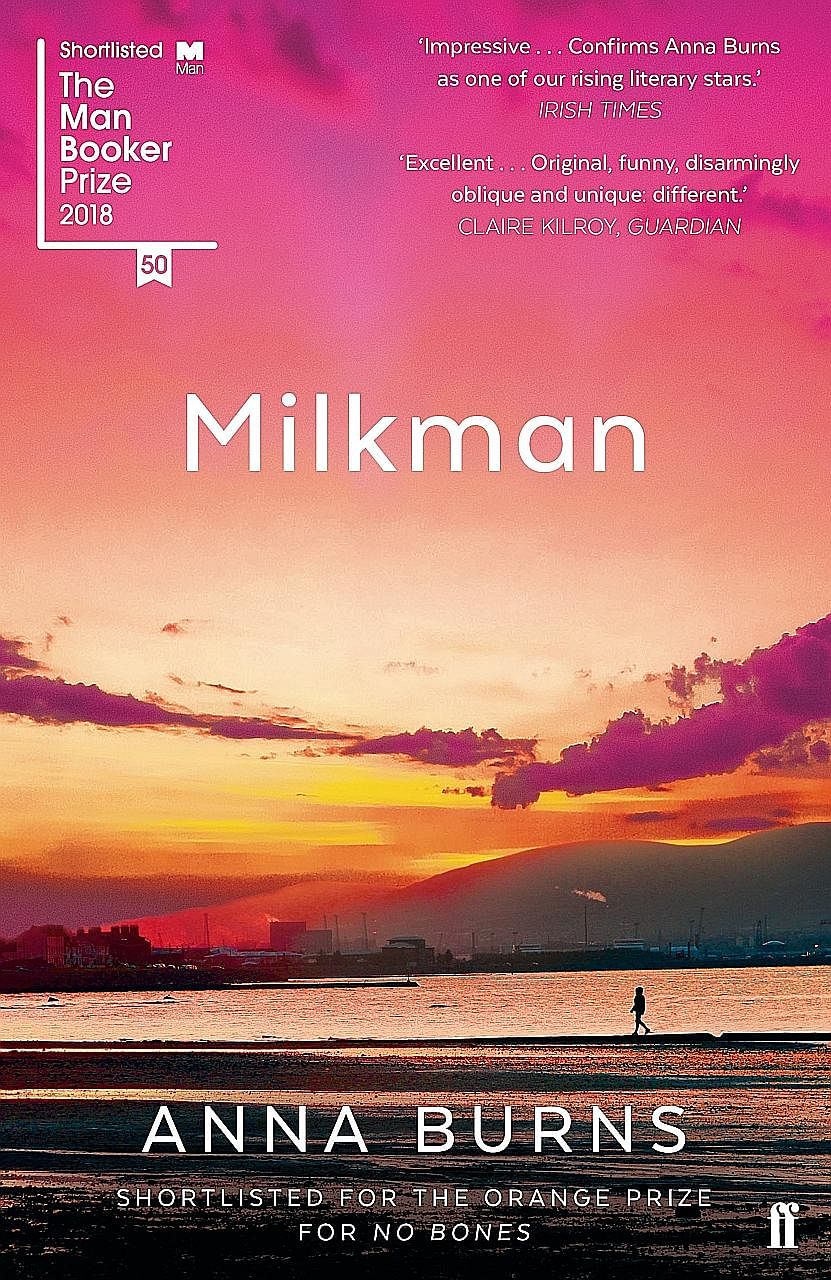Who: Anna Burns, 56, was born in the Northern Ireland capital of Belfast and now lives in England. Her 2001 debut, No Bones, won the Winifred Holtby Memorial Prize presented by the Royal Society of Literature. She has also authored a novel titled Little Constructions and a novella, Mostly Hero.
MILKMAN
Faber & Faber/Hardcover/348 pages/$30.82/Books Kinokuniya
4/5
In the Irish Troubles of the late 20th century, a young woman mounts a lonely struggle as she tries to evade a senior paramilitary figure's sexual advances - telling an evocative narrative that continues to resonate in the #MeToo era.
Written in the first-person perspective of the 18-year-old, Milkman invites readers into her mind, revealing her fear, isolation and vulnerability as she tries to make sense of the events unfolding around her.
The paragraphs can run on for more than two pages, but the dense yet rewarding prose makes the novel unapologetically unique.
The middle-aged paramilitary, who is known as the milkman, approaches her one day with full knowledge of her life and routines. Though she declines his advances and tries to avoid him, word quickly spreads of their "affair".
"It had been my fault too, it seemed, this affair with the milkman," she says in the novel, as though confiding in a close friend.
Frightened and confused by his pursuit, she feels powerless to stand up to him: "If no physically violent touch was being laid upon you, and no outright verbal insults were being levelled at you... then nothing was happening, so how could you be under attack from something that wasn't there?"

Such are the rules of her society, where political problems involve bombs, death, guns and maiming. She lives in a time when Catholic paramilitary groups in Northern Ireland who want to end British rule have come into conflict with the Protestants.
The novel concerns itself not with this violence. Instead, we are shown its effect on everyday life, as the narrator shifts her focus seamlessly from person to incident, and from past to present.
Through her boyfriend's retrieval of a rare car part and his neighbours' questioning of where it came from, she reveals how the community has adopted rules of tribal identification: "Their names" and "our names", "our shops" and "their shops" and "the right butter" or "the wrong butter".
That no character is named and everyone is known by his association to family, an event or a community nickname underscores a sense of conformity and how each person has his role to play in society.
Gossip is rife and those who dare to be different are shunned and marked "beyond the pale". The narrator, in her silent defiance of rumours, finds herself among them.
While some may find the novel difficult to follow, as it regularly veers off its linear narrative to explain each person's backstory, those who stay the course will come to appreciate the vivid tapestry it weaves.
Even though it is set in the late 20th century, the novel's observations on themes such as identity, mental health and social divides ring true today. An effeminate boy who loves cooking has to be saved from bullies; a man struggling with depression receives little empathy from his wife; and a sense of alienation pervades the narrative.
But there is light at the end of the tunnel. Those who are shunned do not therefore fall in line - instead, they persevere in effecting change in the little ways they can.
If you like this, read: For another compelling first-person account, step into Room by Emma Donoghue (Pan Macmillan, 2011, $17.07, Books Kinokuniya), told from the perspective of a five-year-old who has spent his life in a room with his mother.


